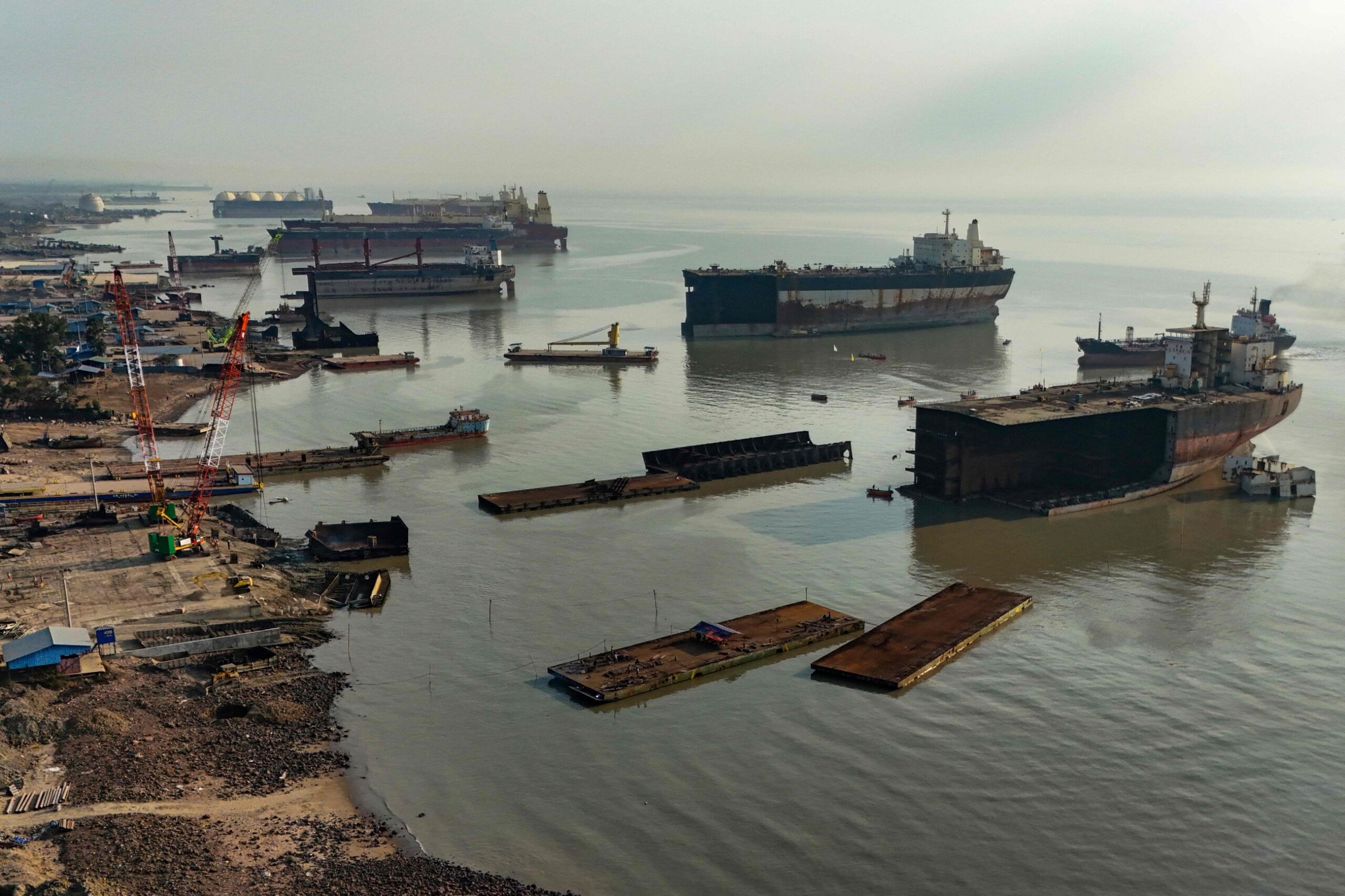Bangladeshi workers risk lives in shipbreaking yards
Shipbreaking Crisis: Workers Face Danger and Despair

In Bangladesh’s Chittagong, the shipbreaking industry is fraught with peril, as workers like Mizan Hossain endure life-threatening conditions. After a severe accident left him with a crushed back, Hossain struggles to support his family on meager wages. Despite the impending enforcement of the Hong Kong Convention on ship recycling, many fear it will not adequately protect workers or the environment.
Dangerous Working Conditions Persist
Mizan Hossain, a 31-year-old shipbreaker, fell ten meters from a ship while working on Chittagong beach, a site notorious for ship dismantling. The vibrations from the ship caused him to lose his footing, resulting in a serious injury that has left him unable to work. “I can’t get up in the morning,” he lamented, highlighting the dire situation faced by many in his community. Hossain, who has a wife and three children to support, described how his family often goes without food, surviving on just one meal every two days.
The shipbreaking yards in Chittagong employ between 20,000 and 30,000 workers, but the industry is plagued by safety violations. Most yards do not comply with international safety standards, and only seven out of thirty facilities have begun to implement necessary safety measures, such as providing helmets and harnesses. The Hong Kong Convention, which aims to regulate the shipbreaking industry and protect workers, is set to take effect on June 26. However, many experts doubt its effectiveness, citing concerns about the enforcement of its regulations regarding toxic waste and worker safety.
Accidents are common in Chittagong’s shipbreaking yards, with at least 470 workers reported killed and over 500 injured since 2009 across Bangladesh, India, and Pakistan. Local records indicate that between 10 and 22 workers die annually in Chittagong alone. Although improvements have been noted since the ratification of the Hong Kong Convention in 2023, the industry still faces significant challenges, including inadequate safety measures and a lack of proper facilities for hazardous waste disposal.
Environmental Impact and Regulatory Challenges
The environmental consequences of shipbreaking in Chittagong are alarming. The industry is responsible for severe pollution, particularly affecting local mangroves and marine life. Toxic substances, including oil and heavy metals, leak into the Bay of Bengal, while asbestos waste is often dumped in open landfills. A recent study published in the Journal of Hazardous Materials revealed that shipbreaking has led to dangerously high levels of arsenic and other harmful metalloids in the region’s soil and food supply.
PHP, one of the few shipbreaking yards in Chittagong that meets the new safety standards, has invested significantly in modernizing its operations. However, the managing director, Mohammed Zahirul Islam, expressed frustration over the criticism directed at the industry. He argued that the responsibility for safety and environmental standards should be shared among all parties involved in the lifecycle of ships, from construction to dismantling.
Despite the challenges, the shipbreaking industry remains a vital part of Bangladesh’s economy, offering low-cost labor for dismantling end-of-life vessels. However, the ongoing instability in the country and a significant decline in the number of ships sent for scrapping since the pandemic have left investors hesitant. As the industry grapples with regulatory compliance and safety concerns, the future of shipbreaking in Chittagong remains uncertain, with calls for better oversight and protection for workers growing louder.
